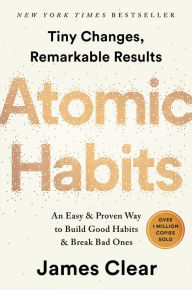A sermon preached by Christopher L. Webber at All Saints Church, San Francisco, on February 16, 2020.
Why do we do what we do?
The New York Times bestseller list has two kinds of nonfiction: a general category, mostly history and biography, and a second category called “Advice, How to, and Miscellaneous.” “How to” books make up most of the list. Usually they offer a couple on love, there’s probably one on diet, and maybe one on dealing with alcoholism. This week there are three on leadership and that might be appropriate reading for a parish seeking a new Rector, but one title I noticed LEADERSHIP STRATEGY AND TACTICS BY A FORMER NAVY SEAL might not be a good fit.
The “how-to” book is is an old, familiar, American phenomenon. We are a nation of doers. If things aren’t right, we want to change them. And we have this pervasive idea that if we just knew how to do it, we could solve any  problem. Through the years, religious books have often been at the top of the “how to” list. I remember one called “the power of positive thinking,” and more recently one called “the Be Happy attitudes.” Currently there’s one co-authored by the Dalai Lama and Bishop Tutu called “The Book of Joy.” Joy, happiness, God on your side. It’s an age-old search. And all too many of us, even if we’ve outgrown it ourselves, try to push it on our children. I’ve heard it 100 times: “I want little Suzy to be in the Sunday school because I think it’s good for children to learn about God and how to behave and get some ethics.”
problem. Through the years, religious books have often been at the top of the “how to” list. I remember one called “the power of positive thinking,” and more recently one called “the Be Happy attitudes.” Currently there’s one co-authored by the Dalai Lama and Bishop Tutu called “The Book of Joy.” Joy, happiness, God on your side. It’s an age-old search. And all too many of us, even if we’ve outgrown it ourselves, try to push it on our children. I’ve heard it 100 times: “I want little Suzy to be in the Sunday school because I think it’s good for children to learn about God and how to behave and get some ethics.”
Christianity is often cheapened into a self-help program, a self-improvement program. But Christianity is not primarily an ethical system and you can’t just simply teach behavior. Children are not dogs to be trained; they are people to be loved. And, anyway, behavior is not the point of Christian faith. It’s a byproduct at best. The church is here not so much to teach children as to love them.
Do you know that Sunday schools were only invented about 100 years ago, and only then to serve children whose families were unchurched? It’s only very recently, two generations, maybe three, that the idea took hold that churches should teach Christianity to children in separate classes. And it happened, I think, because so many families had a feeling that they were failing to do the job but it could somehow be taught.
But it’s interesting to notice that in the Episcopal Church, about 50 to 75 years ago, a counter movement began with the growth of the “family Eucharist” or “Parish Eucharist.” We still bought in to the general belief in Sunday school, though we tended to call it church school, but we began to combine church school with Eucharist. Somehow we knew that there was more to learning than teaching; that Christian faith could not be reduced to a classroom experience.
combine church school with Eucharist. Somehow we knew that there was more to learning than teaching; that Christian faith could not be reduced to a classroom experience.
And especially Christian education can’t be reduced to a matter of good instruction
Why do we do what we do?
I remember a story told by the Bishop of Long Island back when I was in that diocese. It happened during the height of the Cold War. A Russian bishop somehow had gotten permission to travel and had made his way to Long Island and had met with the Episcopal bishop. And the conversation was very stiff at first, and Bishop DeWolfe gradually realized that the Russian bishop was concerned about being overheard. So Bishop DeWolfe got his guest into a car and went for a drive and finally the visitor felt free to talk about the problem of being a church that was forbidden to teach. So what can you do? asked Bishop DeWolfe, and his guest said, “We have the liturgy.”
In this morning’s Gospel, we have a part of the sermon on the Mount which we have been reading for several weeks now, in which Jesus seems to be teaching his disciples how to behave;
“You have heard that it was said to the men of old, you shall not kill; and however kills shall be liable to judgment. But I say to you that everyone who is angry with his brother shall be liable to judgment. . . “
“You have heard it said,” Jesus says again and again, and then he goes on, “but I say. . . .” and what he says is beyond any possibility of doing: “Do not be angry – – do not desire – – do not be limited by law not be unlimited in love.”
Down through the centuries scholars have argued, “Did he mean it? Did he have in mind an impossible utopia? Did he expect the kingdom to come in his lifetime and was he condemning us all to hopelessness? If it weren’t that Lent is coming, we would come back next week and hear the end of this section and Jesus saying “You must be perfect, as your father in heaven is perfect.”
Is that the gospel? Is that the bottom line? “Be perfect.” Is that Good News? Are we really to teach our children a way of life we haven’t even tried and can’t follow ourselves? Or is Christian behavior like the 55 mile an hour speed limit: a swell idea as long as nobody really expects me to accept it?
But I think we miss the point when we look at Christianity as primarily a way to behave, a system of ethics. There was a fundamentalist college in Upstate New York, near where I grew up, where girls were required to wear long sleeved dresses. Smoking, drinking, card playing were all no-noes. That trivializes something intended to be far more revolutionary than just being nicer to others. These commands of Jesus are serious and, yes, they are meant for us. But if we are called to be like Christ, called to perfection, then we have only two alternatives: to fail in a futile effort to do it ourselves, or to give up, admit who we are, and die to self – and let Christ remake us in his image. I think that’s the goal: Christ in us. I think that is what baptism is all about. I think that’s what the Eucharist is all about. I think that’s what prayer is all about. It’s about dying to self and letting Christ live in us. It’s about being born again. And as that happens, behavior will take care of itself. We will become a new person and act like that new person.
I happened to have a talk show on the car radio one day years ago and the subject was alcoholism. A woman called in and told how she was living with a man she loved a lot, but he was alcoholic and would get depressed over something, and get drunk, and beat her and her child. “Get out!” said the talk show host. “Go to Alanon. Hear about it from people who have been there. But you can’t change him. He has to change himself.” There was dialogue back and forth and finally the woman said, “well, all right, but what about him? Should he go to a meeting?” And the talk show host, a psychiatrist, said, “of course he should go to a meeting. He should stop drinking. But should is a meaningless word. You do what you have to do.”
“Should is a meaningless word. You do what you have to do.”
Well, how often have you and I said, “I know what I should do, but – – –“ haven’t you said that? What controls your life: “should” or something stronger? “You do what you have to do.” Exactly right. And what we have to do is what we are, what’s in us, our inner nature. Which doesn’t mean we are simply helpless victims of our genetic inheritance and environment, that we “can’t help ourselves” – – a kind of “no-fault” ethics. No, it means that we need to concern ourselves not so much with the rules we learn as with the relationships we form, and with the environment we choose to live in, not so much with what guides us from the outside as with what shapes us from the inside, what in-forms us, not so much with what relationships we create as with what relationships re-create us.
Why do we do what we do? “A bad tree,” Jesus said, “cannot produce good fruit.” You can say “should” to it all you want; it won’t happen. What matters is the soil and the rain and inherited genetic traits that form that tree over the years from within. So too we may hear sermons that tell us “should” but they will have no affect on us unless we have found a source of life in the Eucharistic community that enables us to grow into the life to which we are called.
Jesus said, “do this,” and he took bread and said, “this is my body.” That’s what  we need. His life transforming ours. Why do we do what we do? Because Christ in us so shapes our hearts and minds that we love what he is and do what he does and become who he is. When that happens “should” becomes a meaningless word.
we need. His life transforming ours. Why do we do what we do? Because Christ in us so shapes our hearts and minds that we love what he is and do what he does and become who he is. When that happens “should” becomes a meaningless word.
Yes. And should can damage and bully in its insisting, whereas need offers nurturing, restoring, re-clothing in rightful minds.
Thanks Chris. Always good stuff from you.
Fr. Chris, I heard you deliver this homily this morning at All Saints. I asked you for a copy and you gave me your website address. Thank you! The most meaningful part of this homily for me is, ” But if we are called to be like Christ, called to perfection, then we have only two alternatives: to fail in a futile effort to do it ourselves, or to give up, admit who we are, and die to self – and let Christ remake us in his image. I think that’s the goal: Christ in us. I think that is what baptism is all about.” “Die to self – and let Christ remake us in his image.” Wonderful thoughts for meditation this Lent.